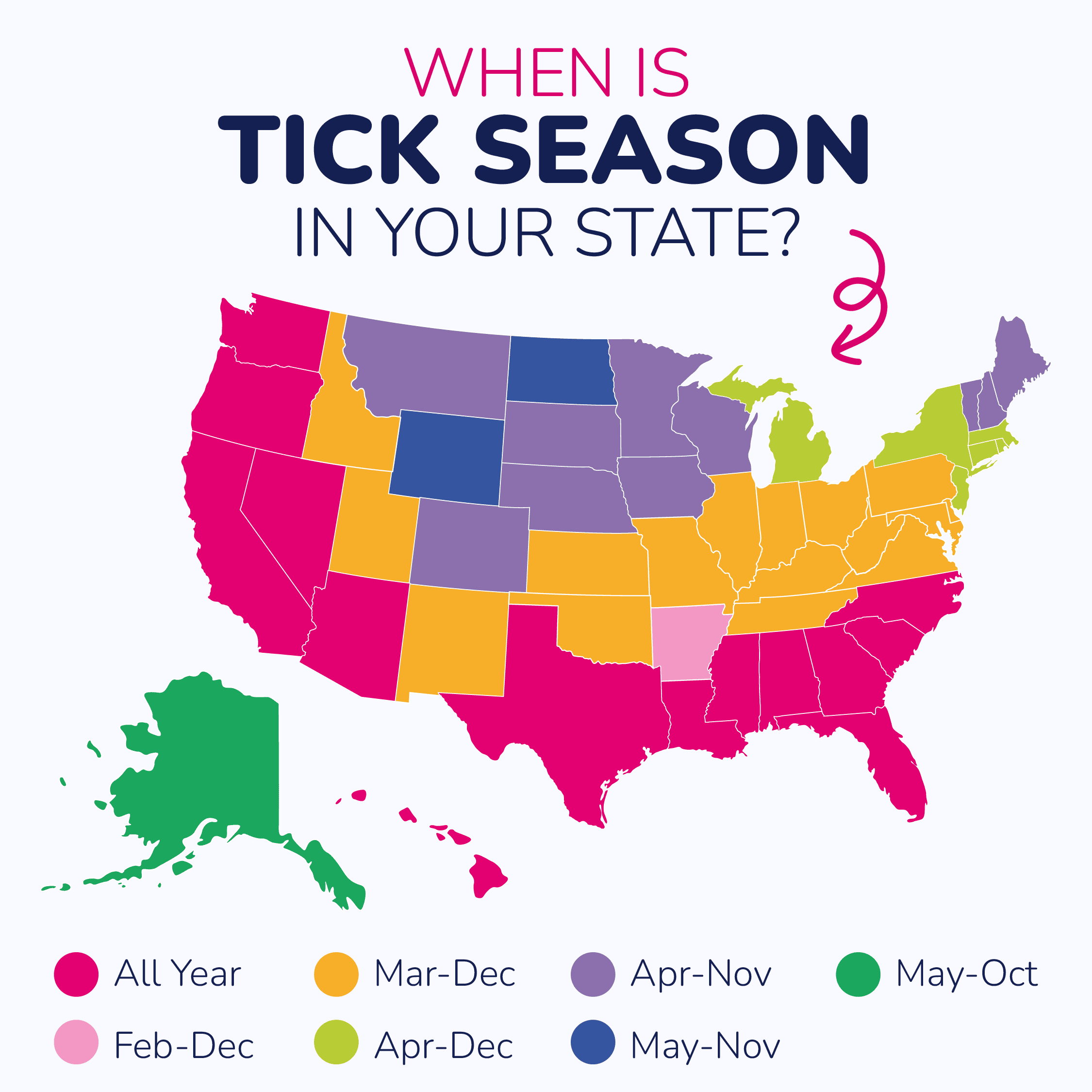In this post, I’m going to break down a critical aspect of pet health care: vaccinations. As an experienced veterinarian, I understand the importance of protecting our pets from prevalent diseases.
This guide will help you understand the common pet diseases that vaccinations prevent, as well as the vaccine provided.
Key Takeaways
-
Vaccines can protect your pet from contagious and potentially deadly diseases like distemper, parvo, and rabies.
-
Vaccines go beyond your pet as they contribute to herd immunity, safeguarding the entire pet community from outbreaks.
-
Follow the vaccination schedule recommended by your veterinarian. This will ensure that your cat or dog gets the necessary protection at the right times in their life.
Let’s delve into the essential benefits of pet vaccinations.
Why is Vaccinating Your Pet Important?
Vaccinating your pets is crucial because it protects them from several serious and potentially deadly diseases. Vaccines help build immunity against conditions like rabies, distemper, and parvovirus, which can be costly to treat and are dangerous to both pets and humans. Vaccinations are a proactive step in ensuring your pet’s health and safety.
Here are the main reasons to vaccinate your pet:
1. Builds Immunity
Vaccines help build immunity once the protection from their mother fades. Vaccines stimulate the immune system to produce protective antibodies that fight and neutralize diseases, keeping them healthy.
2. Protects Pets From Common Diseases
Vaccines are an important component of preventative vet care. Along with regular wellness examinations, vaccines are key to your pet’s long-term health and wellness.
3. Avoids Transmission Humans
Pet vaccines also safeguard public health by preventing zoonotic diseases like Rabies. It helps avoid costly vet bills for treating severe illnesses. It also helps safeguard the health of the community by boosting immunity in groups of animals.
4. Required by State Laws
Many states require rabies and/or distemper vaccinations by law. When traveling, whether domestically or internationally, it is important to follow the regulations set by your destination.
When Should You Vaccinate Your Pet?
The best time to start vaccinating your pet is when they are young, typically starting around 6 to 8 weeks of age. Puppies and kittens usually receive a series of vaccines spaced 3 to 4 weeks apart until they are about 16 weeks old.
After this initial series, pets should receive booster vaccines based on your veterinarian’s recommendations, often annually or every three years, depending on the vaccine type and local regulations.
It’s crucial to follow a vaccination schedule tailored to your pet’s specific needs and lifestyle to ensure they remain protected throughout their life.
Pet Diseases Prevented by Vaccines
Understanding these diseases and their potential risks underscores the importance of maintaining an up-to-date vaccination schedule for your beloved pets.
These are the key diseases that vaccines help shield our pets from:
Canine Distemper
Canine distemper is a highly contagious and often fatal virus spread through direct contact with an infected animal or through airborne exposure. Vaccination is critical and usually starts in puppies. Symptoms include fever, coughing, and discharge from the eyes and nose, leading to severe neurological issues.
The distemper vaccine for dogs is part of a multi-purpose vaccine (often referred to as DAPP, DA2PP, or DHPP) that also safeguards against several other prevalent canine viruses. This essential vaccine is classified as a “core” vaccine and is recommended for all dogs.
Canine Parvovirus (Parvo)
Parvo is an extremely contagious virus affecting dogs, often contracted through contact with contaminated feces. Symptoms include severe vomiting, diarrhea, and dehydration, and it can be deadly, especially in puppies.
The Parvo vaccine is a vital preventive measure to combat this virus. It’s usually given to puppies in a series of three shots. First 6 to 8 weeks old, next at 10 to 12 weeks, and then at 14 to 16 weeks. Booster shots of the parvo vaccine are typically administered one year later, then every 3 years.
Canine Parainfluenza
Canine parainfluenza is a highly contagious respiratory virus spread through airborne particles and causes coughing, nasal discharge, and fever.
Vaccination against parainfluenza is often combined with other respiratory disease vaccines, such as the 5-in-1 vaccine.
Canine Adenovirus Type 1 & 2
Canine adenovirus type 1 causes infectious canine hepatitis, which can lead to severe liver damage, while type 2 is associated with respiratory illnesses in the kennel cough complex. Both types are highly contagious, spread through contact with infected bodily fluids.
Vaccines are available for both types and are typically administered together.
Rabies
Rabies is a fatal viral diseasetransmitted through the bite of an infected animal. Symptoms include behavioral changes, paralysis, and ultimately death. The rabies vaccine is legally required in many areas due to its severity and zoonotic potential (transmissible to humans).
Lyme Disease
Lyme disease, transmitted through the bites of infected ticks, is caused by the bacteria Borrelia burgdorferi. Common symptoms include fever, lameness, swelling of the joints, and lethargy in pets. It’s more prevalent in certain geographic areas.

The Lyme vaccine is recommended for dogs at risk of tick exposure.
Leptospirosis
Leptospiroris is a bacterial disease spread through urine-contaminated water and can lead to liver and kidney damage. Symptoms include fever, vomiting, and abdominal pain.
The lepto vaccine is advised for at-risk dogs based on geographical location and lifestyle.
Bordetella (Kennel Cough)
Bordetella bronchiseptica causes the highly contagious kennel cough. Spread through airborne droplets, symptoms include persistent coughing and wheezing. Vaccination is recommended for dogs that frequent kennels, dog parks, or grooming facilities.
Canine influenza
Canine influenza, or dog flu, is a contagious respiratory virus caused by two main influenza strains, H3N8 and H3N2. It spreads through respiratory secretions and contaminated surfaces, prevalent in boarding or kennel facilities, daycares, shelters, dog parks, and grooming facilities.
Symptoms include coughing, fever, and nasal discharge. Severe cases can lead to pneumonia.
A bivalent canine influenza vaccine (offering protection against both strains) is recommended for dogs in high-exposure environments.
Feline Panleukopenia (Feline Distemper)
Feline panleukopenia, also known as feline distemper, is a highly contagious viral disease. It spreads through all body secretions, including infected feces, and can also be transmitted in utero. The virus attacks the gastrointestinal system, lymphoid system, and bone marrow. Infection during pregnancy can result in cerebellar hypoplasia in kittens.
The disease is preventable with the feline distemper vaccine.
Feline Herpesvirus (Feline Viral Rhinotracheitis)
Feline herpesvirus, also known as feline viral rhinotracheitis (FVR), is a highly contagious viral disease. It mainly spreads through eye, nose, and mouth secretions as well as direct contact between cats.
This virus primarily attacks the respiratory system, particularly the upper respiratory tract, leading to symptoms such as sneezing, nasal discharge, and conjunctivitis. In severe cases, it can cause coughing, wheezing, and difficulty breathing
FVR can remain dormant in the body, causing recurring or chronic infections. The vaccine is part of the standard FVRCP vaccine given to cats.
Feline Calicivirus
Feline calicivirus is a very contagious viral disease, spread through direct contact between cats. Part of the upper respiratory infection complex in cats, it spreads easily and causes ulcers in the mouth, respiratory issues, and sometimes lameness.
The calicivirus vaccine is also included in the routine FVRCP vaccination for cats.
Feline Leukemia (FeLV)
Feline leukemia is a virus that impairs the cat’s immune system and can lead to cancers. FeLV is spread through close contact with infected cats. This can happen through activities like mutual grooming, sharing food and water bowls, and through bite wounds, scratches, and mating. Symptoms include weight loss, recurrent illness, and lethargy.
The FeLV vaccination is recommended for cats at risk of exposure to infected cats.
These vaccinations are vital for preventing these serious diseases in pets, keeping them healthy, and avoiding high treatment costs.
Conclusion
Vaccines protect pets from serious diseases. Keeping up with both core and lifestyle vaccinations is highly recommended by veterinarians as it limits the spreading of contagious diseases between animals, and even people.
Luckily, BetterVet offers convenient in-home vaccinations, ensuring your pet isn’t exposed to other animals that might carry or spread diseases. Keep your pet healthy and protected right from the comfort of your home. Schedule an appointment today!
Frequently Asked Questions
How do vaccinations help in preventing pet diseases?
Vaccinations work by introducing a small, harmless piece of the disease-causing organism into the pet’s body. This stimulates the pet’s immune system to recognize the agent as a threat, destroy it, and “remember” it, so that the pet can more quickly fight off the infection if they are exposed to the actual disease in the future.
Are there any risks associated with vaccinating my pet?
While vaccinations are generally safe, like any medical treatment, they can carry some risks. Most pets experience only mild side effects, such as soreness at the injection site or temporary lethargy. More serious reactions, such as allergic reactions, are rare but can occur.
Can indoor pets skip vaccinations?
Even indoor pets should be vaccinated, as they can still be exposed to diseases. Viruses like rabies and airborne diseases can enter homes, and pets might escape or get exposed to other animals when visiting a vet. Vaccinating indoor pets protects them from unexpected risks.
What happens if I don’t vaccinate my pet?
Unvaccinated pets are at a higher risk of contracting and spreading serious diseases that vaccinations can prevent, such as parvovirus, rabies, and distemper. These diseases can be fatal and are far more expensive to treat than the cost of vaccination. Additionally, unvaccinated pets can pose a health risk to other pets and, in the case of rabies, to humans as well.
Are pet vaccinations mandatory by law?
Some pet vaccinations, such as the rabies vaccine, are mandatory in many parts of the world, including the United States. The legal requirement for rabies vaccinations can vary by state and region, but it is commonly required for the public safety of both humans and animals. Other vaccinations are recommended based on regional disease risks and the pet’s lifestyle.
Sources:
-
Dodds, W.J., 2021. Early life vaccination of companion animal pets. Vaccines, 9(2), p.92.
-
Miyazawa, T., Yoshikawa, R., Golder, M., Okada, M., Stewart, H. and Palmarini, M., 2010. Isolation of an infectious endogenous retrovirus in a proportion of live attenuated vaccines for pets. Journal of virology, 84(7), pp.3690-3694.
-
Horzinek, M.C., 2006. Vaccine use and disease prevalence in dogs and cats. Veterinary Microbiology, 117(1), pp.2-8.





